Tired of dry, leftover turkey? Reheat smartly to unlock its juicy, flavorful potential and turn your leftovers into meals you’ll crave.
Smoked turkey isn’t just for holidays! With simple reheating tricks and creative recipes, turn those leftovers into mouthwatering meals all week long.Sarah Jones, Home Chef & Leftover Enthusiast

If you just want to know how long to reheat a smoked turkey, click here.
🔑 Key Things to Know
Smoked turkey offers convenience but requires safe handling. Before cooking up this tasty bird, keep these key guidelines in mind:
- Store in the fridge for up to 4 days or freeze for 4 months.
- Reheat to 165°F to ensure safety.
- For gentle reheating, use oven at 225°F, grill on low, or sous vide at 150°F.
- Wrap tightly and store in the coldest part of the fridge, away from the door.
- Use older leftovers first for freshness.
- Before reheating, brine turkey slices and use broths, foils, or water pans to prevent dryness.
🍗 Why Smoked Turkeys?
Smoked turkey has a uniquely sweet, woody flavor that sets it apart from oven-roasted turkey. We often eat turkey only as Thanksgiving leftovers, but smoked turkey is versatile and can be enjoyed all year.
The delicate smoky aroma and tender meat make smoked turkey an exceptional filling for sandwiches, wraps, salads, and more.
Add shredded smoked turkey to egg scrambles for a perfect breakfast on lazy weekends. Diced smoked turkey breast transforms leafy salads from mundane to crave-worthy.
Beyond its versatility, smoked turkey keeps beautifully as leftovers. Sliced smoked turkey stays fresh in the refrigerator for up to four days.
This simplicity helps in quickly preparing weekday lunches like pitas, subs, or Caesar salad wraps. With just a little creativity, smoked turkey can be so much more than an annual holiday tradition.
✨ Benefits of Reheating Smoked Turkey
- Saves Money
- Shredded turkey works in many easy, tasty meals like omelets, lettuce roll-ups, hot dishes, and soups.
- Getting creative with leftovers saves cash instead of making boring turkey sandwiches again.
- Reduces Waste to Help Environment
- Reusing turkey cuts down on food sent to landfills, with over 20% of all trash being wasted food.
- Also saves resources used in turkey transportation and production.
- Makes Weeknight Meals Easier
- Shredded leftovers can quickly assemble into quesadillas, flatbreads, grain bowls, and more.
- Preparing some ingredients ahead of time makes fast, healthy dinners easy on busy nights.
Reheating smoked turkey means:
✅ Save money
✅ Help the planet
✅ Less stressful weeknights
It’s a triple win!💪
🥗 The Nutritional Benefits of Smoked Turkey
Smoked turkey packs an impressive nutritional profile. With just 3 ounces (85 grams) providing 24.9 grams of satiating protein, smoked turkey serves as a nutritious and versatile ingredient.
| Nutrient | Amount Per 3 oz (85g) Serving | Benefits |
| Protein | 24.9g | Muscle building and repair; keeps you feeling full |
| Vitamin B6 | 18% Daily Value | Supports brain function, immunity, red blood cell production |
| Niacin | 24% Daily Value | Promotes healthy skin, digestion, nervous system function |
| Selenium | 25% Daily Value | Boosts immune system, thyroid health, antioxidant protection |
| Sodium | 19% Daily Value | Important for fluid balance, muscle contraction, nerve signaling |
| Iron | 6% Daily Value | Facilitates red blood cell formation and energy metabolism |
| Zinc | 15% Daily Value | Allows nutrient conversion to energy; enables bodily processes |
| Vitamin B12 | 7% Daily Value | Essential for red blood cell formation and energy metabolism |
Protein and Muscle Health
The high protein content promotes muscle growth and repair while keeping you feeling fuller longer. This makes smoked turkey an excellent addition to meals when trying to lose or maintain weight.
Immunity and Antioxidant Defense
Smoked turkey contains selenium and vitamin B6, which strengthen the immune system and thyroid function. It also provides niacin to support healthy digestion.
Energy Production
As a good source of iron and vitamin B12, smoked turkey aids red blood cell formation and energy metabolism. The zinc it supplies further facilitates bodily processes that convert nutrients to fuel.
🔥🍖 How Reheating Impacts Nutrients
Reheating smoked turkey has some surprising benefits beyond just convenient leftovers. When you reheat smoked turkey, its collagen breaks down into gelatin. This released gelatin provides essential amino acids that support joint health.
Annually, the US alone wastes over 4 billion pounds of turkey meat. This waste burdens landfills and squanders resources used in raising turkeys.
By reheating your leftovers instead of tossing them out, you can directly reduce your environmental impact.
The EPA estimates a family of 4 wasting just half the average amount of turkey still conserves over 7 lbs of CO2 equivalent greenhouse gases.
Reheating also unlocks new nutritional value via a fascinating chemical process. Heating turkey breaks its collagen into gelatin.
This gelatin is rich in amino acids like glycine and proline that protect joints. For those facing inflammatory conditions or joint injuries, consuming reheated turkey in casseroles and broth-based dishes provides targeted nutritional support.
The University of San Francisco reported a 30% increase in joint-building proteins after collagen in turkey turns into gelatin upon reheating.
Mastering Smoked Turkey Reheating Methods
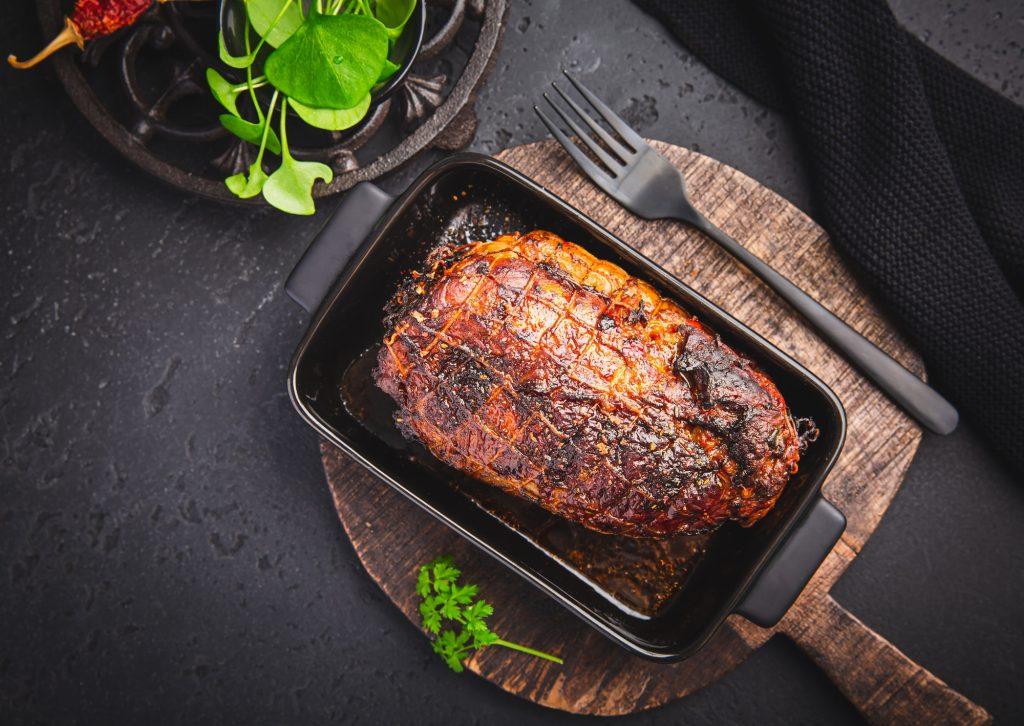
Harnessing Science for Optimal Smoked Turkey Reheating
Understanding the scientific processes behind reheating unlocks better moisture, texture, and even flavor compared to casual leftovers.
Navigating the Moisture Loss Tightrope
Reheating temperatures must balance perfectly between drying out turkey and safely eliminating bacteria. At too low of heat, microbes can multiply and proteins stiffen.
Too hot, and cellular water rapidly evaporates. The 130-150°F “goldilocks” zone gently rewarms turkey without squeezing out precious moisture through protein shrinkage and tightening.
Reviving Dried Meat with Brine Power
Osmosis and diffusion science resuscitates even badly dried smoked turkey. Soaking in a broth brine before reheating allows water migration into turkey cells, restoring much needed hydration.
Seasonings simultaneously infuse, amplifying flavor. Through this controlled rehydration, brining helps prevent desiccation during the reheating process itself.
Blending Tradition with Technology
While ovens suffice for basic leftovers, modern tech like sous vide provides unmatched moisture control and tenderness by gently cooking vacuum-sealed turkey in a precise temperature water bath.
Likewise, grills can quickly imbue bonus smoky notes through vaporized drippings. Creatively blending these advanced methods with traditional oven approaches unlocks superior reheated turkey.
By understanding the science from a molecular level up, we can truly reinvent leftovers instead of just preserving them. Turkey reheated with care emerges revitalized, juicy and full of flavor possibility.
| Method | Best For | Temperature | Time | Tips |
| Oven | Whole turkey | 225°F | 10-15 min per lb | – Cover in foil – Add shallow pan of water – Use meat thermometer (140-165°F) |
| Stovetop | Sliced turkey | Medium-low heat | 2-3 min per side | – Slice into 1/4″ pieces first – Use oil & herbs for flavor – Add broth to prevent drying |
| Sous Vide | Turkey slices or shreds | 150°F | 1-2 hours | – Creates incredibly moist, tender texture |
| Grill | Turkey slices | Low heat | 5-10 minutes | – Add wood chips for smoke flavor – Char edges slightly |
🦃🔥Oven Method: Ideal for Whole Smoked Turkeys
The oven allows you to gently reheat a whole smoked turkey leg, drumsticks, or breast to retain moisture and texture.
- Pre-heat the oven to 225°F and place the fully cooked smoked turkey meat in a roasting pan. Cover with foil to prevent overcooking.
- Use a meat thermometer inserted into the thickest part of the turkey breast. Heat until it reads 140-165 degrees for food safety.
- Placing a shallow pan filled with water on the oven bottom adds moisture to keep the reheating turkey legs and meat from drying out.
🍳🍗Stovetop: Quick Reheating for Sliced Smoked Turkey
You can quickly reheat sliced smoked turkey cut from the breast, legs or wings in a skillet on the stovetop.
- Prepare the smoked turkey for reheating by cutting it into 1/4 inch slices first.
- In a pan over medium-low heat, add olive oil and herbs like rosemary or thyme for added aroma and flavor.
- Cook the turkey slices for 2-3 minutes per side just until heated through, flipping halfway. Add broth to prevent drying.
🌡️🔥Unexpected Methods: Sous Vide and Grilling
Go beyond traditional reheating by experimenting with sous vide cooking or firing up the grill:
- Sous vide smoked turkey in a water bath at 150°F for 1-2 hours to achieve incredibly moist, fork-tender reheated meat.
- Infuse grilled flavor by reheating smoked turkey slices directly on a hot grill over low heat with aromatic wood chips. Char the edges slightly before serving.
📝Pro Smoked Turkey Storage Tips
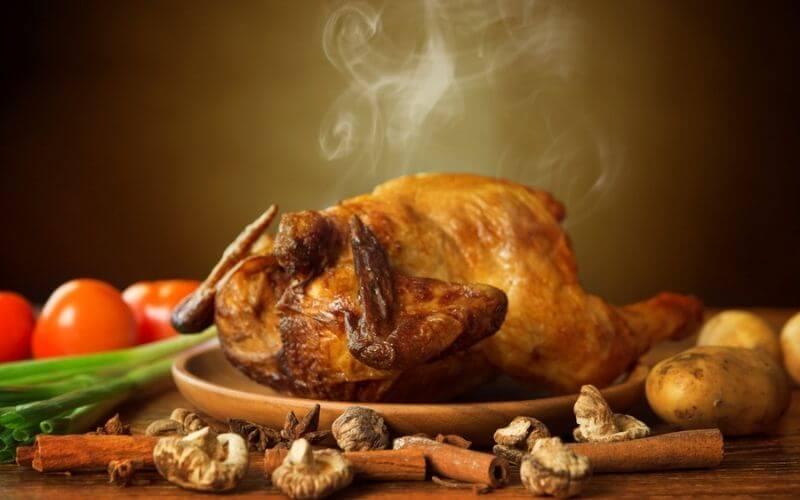
Correctly storing your smoked turkey legs, breast or whole bird preserves safety, freshness and moisture. Learn more about the shelf life of turkey in the fridge in our detailed guide.
- Store smoked turkey tightly wrapped in the coldest section of the refrigerator (below 40°F) to inhibit bacteria growth.
- Frozen smoked turkey breast or leftovers keep for 2-4 months when sealed airtight in freezer bags or containers to prevent freezer burn or ice crystals.
- Clearly label packages with the date and contents for easy identification. Tracking freshness ensures you use the smoked turkey within recommended 3-4 day refrigeration or 2-4 month frozen time period.
- Avoid areas like the refrigerator door that fluctuate in temperature during daily open/close cycles. These temperature swings degrade smoked turkey quality quicker through moisture loss.
Reheating & Storing Leftovers
- Reheat smoked turkey no more than once. Multiple reheats increase risk of dangerous bacterial growth.
- After carving roasted smoked turkey from the bone, store slices and shredded meat tightly sealed in bags/containers in the coldest refrigerator spots for 3-4 days maximum.
For guidelines on storing raw turkey, see our detailed article on safe fridge storage practices.
🌿Beyond Reheating: Creative Leftover Transformations
As a longtime chef constantly seeking global inspiration, I’m always amazed by smoked turkey’s versatility for fusion flavor.
My New York cafe guests often didn’t realize how effortlessly turkey transforms into internationally-inspired small plates perfect for happy hour pairings. Let me share some of my cherished creations.
Smoked Turkey Bibimbap
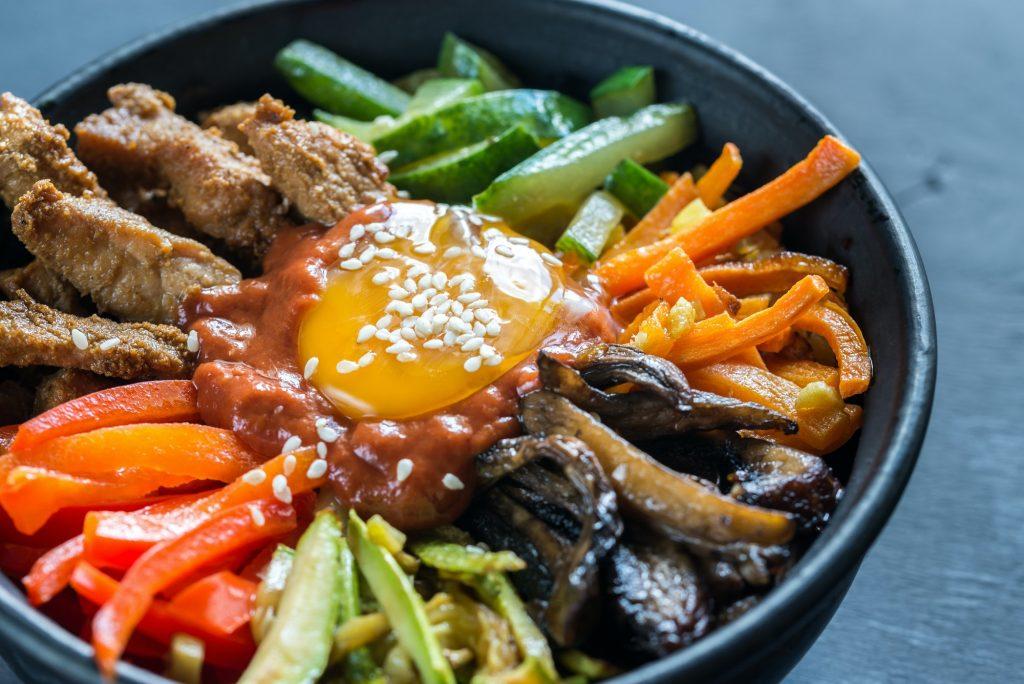
Korean flavors work deliciously with smoked turkey’s sweetness. Sliced turkey breast slices tangles with mushrooms, shredded carrots, sprouts and spinach over sesame ginger rice. The runny fried egg and gochujang sauce complete the flavor profile.
Jerk Spiced Smoked Turkey Wraps
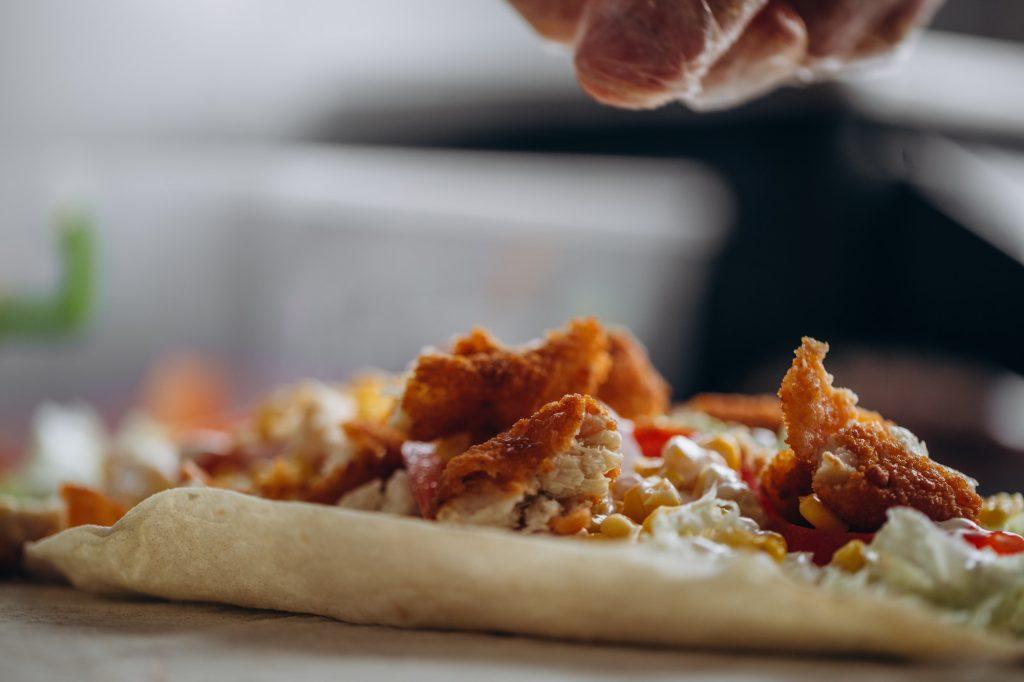
Seeking an lighter option, I combined shredded smoked turkey breast with sautéed bell peppers, sweet plantains and beans de lima beans punched up with my homemade jerk dry rub.
Spooned into crisp bibb lettuce leaves, every crunchy, lightly spicy bite transports you to the Jamaican coastline. Adding some mango salsa ties it all together.
Smoked Turkey Cranberry Empanadas
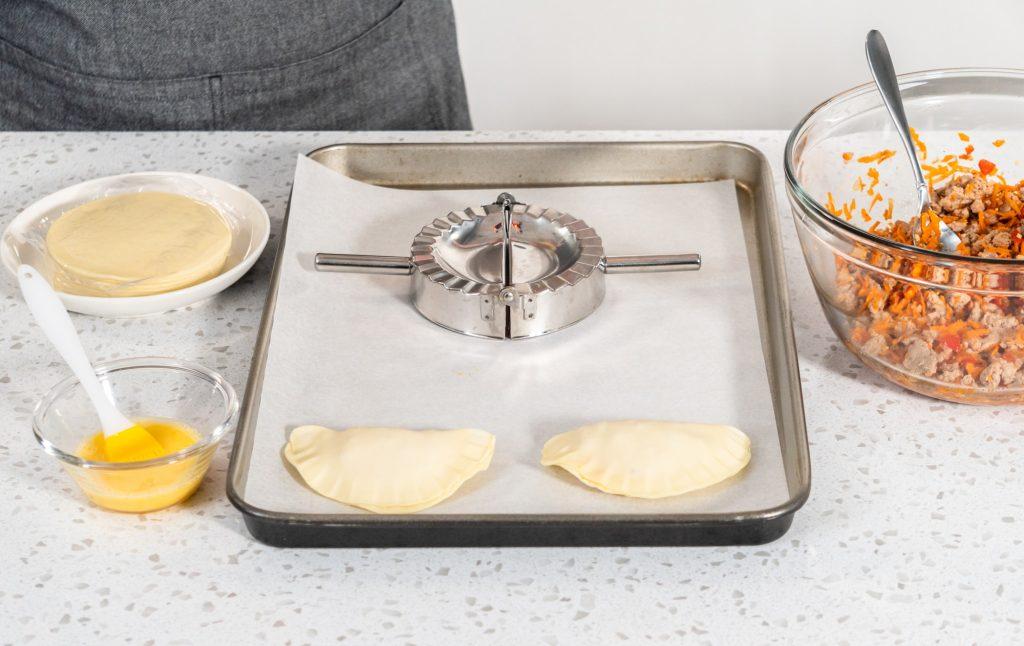
These handheld baked pastries were a guest favorite at my café. Flaky dough cradles a savory smoked turkey filling amplified by tart dried cranberries, oozy Italian fontina and caramelized onions.
Adding a touch of nutmeg, cinnamon and allspice gives these turkey empanadas a warmth that leaves you craving more than one. I love serving them with a kicked-up avocado salsa verde.
I hope my global leftover turkey creations inspire you to think beyond the usual boring sandwiches.
With some imagination and willingness to fuse flavors from around the world, smoked turkey transforms into an anytime meal full of flavor and flare your guests will adore.
FAQs
How do you reheat a smoked turkey without drying it out?
Use gentle heat like an oven or microwave, take it slow, and add moisture. Cover the turkey in broth, foil, or an oven bag before reheating it slowly to an internal temp of 165°F. Adding a water pan to the oven provides humidity. Resting it afterwards locks in juices.
Is smoked turkey good reheated?
Yes, smoked turkey retains its flavorful smoky taste and tender texture after being properly reheated. Use lower oven temps or quick stove top methods. Check internal temp with a meat thermometer to prevent overdrying.
How do you reheat smoked meat without drying it out?
With all smoked meats, gentle reheating is key. Opt for slower oven, crockpot, or sous vide methods. Slice meats thinner before reheating. Cover or wrap to seal in moisture. Spritz with broth and rest meat after reheating to absorb juices.
How do you reheat a smoked turkey bag?
Preheat your oven to 300°F and place the sealed smoked turkey bag directly on a baking sheet. Heat turkey for 10-15 minutes per pound, checking internal temp with a meat thermometer inserted through the bag. Rest turkey for 15 mins before carefully removing from hot bag.
How do you reheat a smoked turkey and keep it moist?
Use foil or an oven roasting bag to cover and seal in moisture. Baste frequently with turkey broth or pan juices. Allow the turkey to rest tented in foil after reheating so steam can gently finish cooking and moisten the meat.
How do you reheat turkey so it’s moist?
Slice turkey thinner before gentle reheating methods like baking at 275°F or microwaving with broth. Keep leftovers sealed and buried in their juices. Quick stove top sautéing in butter prevents drying. Brining resuscitates dried out portions before reheating. Let sit after heating.
Take Your Smoked Turkey Leftovers to New Heights
Hopefully this guide has empowered you to go beyond basic turkey sandwich leftovers. With the reheating tips and creative food transformation ideas, you can rediscover the possibilities of your leftover smoked turkey.
Now it’s your turn to experiment with these techniques and invent your own twists. Does sous vide turkey come out juicy or dry? What unique spice rub pairing can liven up grill reheated slices? Which salad combo is your new signature turkey leftover go-to?
Share your smoked turkey victories and lessons learned by engaging with your fellow readers. Trade storage observations, safety best practices and even radically inventive leftover recipes in the comments below.






